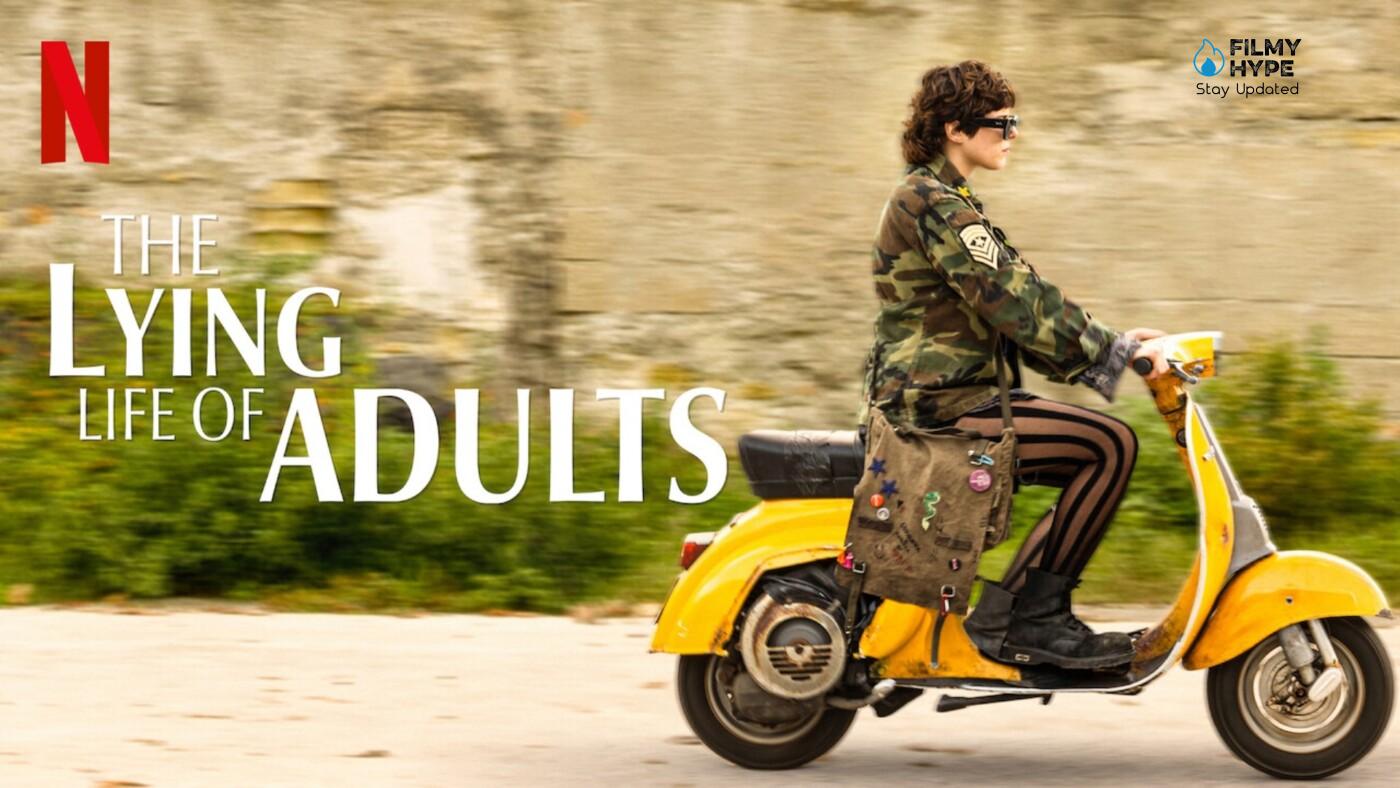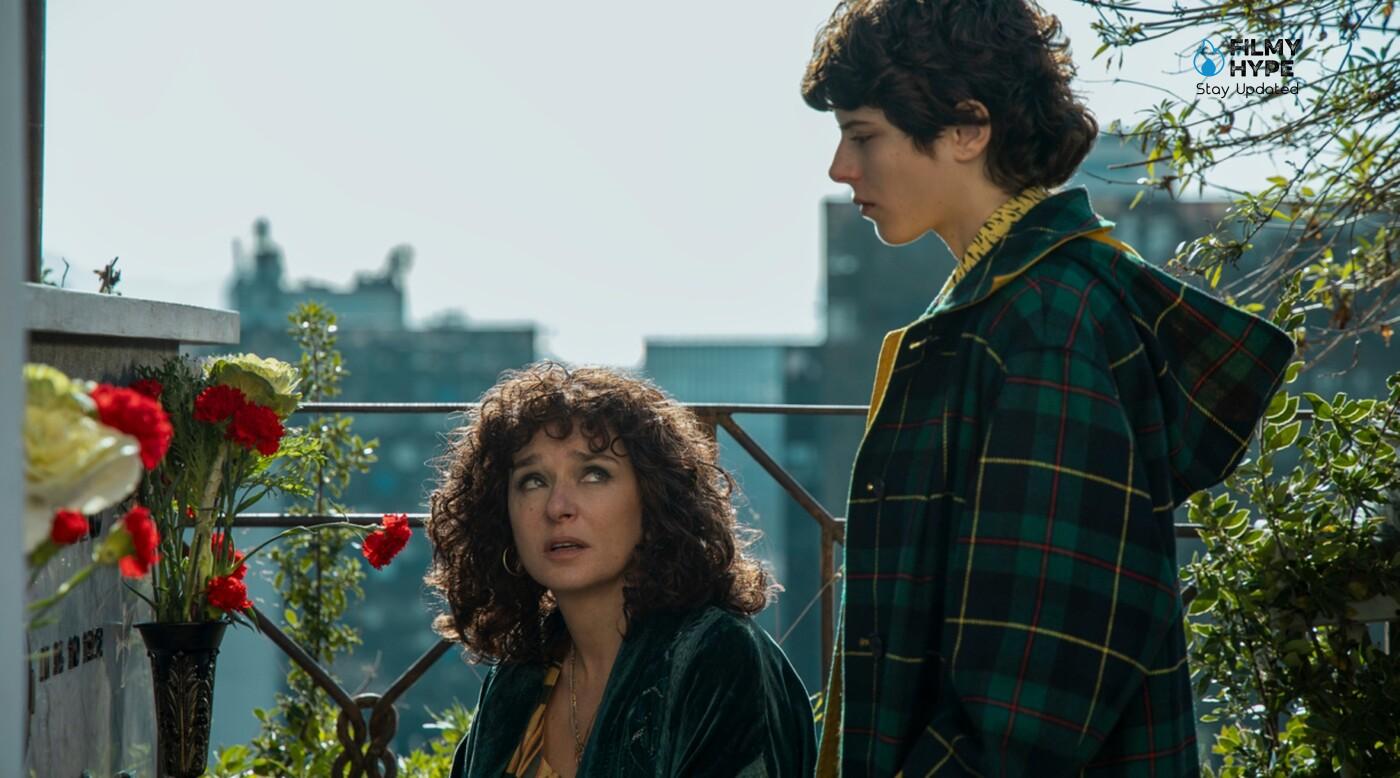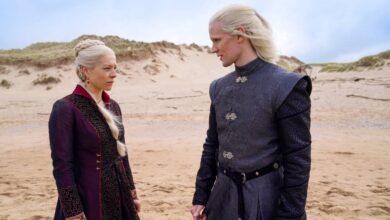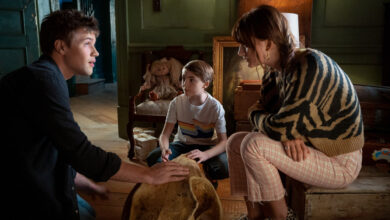The Lying Life of Adults Ending Explained: What Happened to Giovanna and Vittoria?
How does The Lying Life of Adults end on Netflix? The first season of the TV series based on the homonymous novel by Elena Ferrante set in picturesque Naples in the 90s debuts on Wednesday 4 January 2023. Composed of six episodes in all, the adaptation for the small screen is signed by Elena Ferrante, Laura Paolucci, Francesco Piccolo and Edoardo De Angelis. The latter also acts as director. With the wait that surrounded the new original Italian Netflix production, it’s easy to think that there were not a few subscribers to the platform who decided to watch all six episodes of The Lying Life of Adults in one breath. If you are among these people, you have just seen the ending and you are looking for an explanation, you are in the right place.

At the center of the story, we follow the story of the young and curious Giovanna, a teenager who wanders in search of her identity in the presence of a large and colorful Naples. Giovanna presents herself with an aggressive look and for this reason, her mother tells her that she looks a lot like her aunt Vittoria, the hopeless black sheep of the family. And it is precisely at the door of this phantom woman that the protagonist runs to knock. At only 15 she grew up in the world above, in Naples well, but Giovanna is very interested, but above all, she feels that a part of herself is missing. Thus begins her phase of rebellion, one in which the girl will put aside her childhood to learn to be an adult.
The Lying Life of Adults: Plot Summary
In 1990s Naples, the brazen and audacious Aunt Vittoria helps her niece explore a different side of the city and annoys the girl’s strict parents. Naples, 90s. Giovanna is a teenager like many others. Indeed not. Because her parents, Andrea and Nella, both teachers, accuse her of being ugly. Worse, to look more and more like Aunt Vittoria, a terrible ghost that has been hovering for years in that upper-class house, menacing and scandalous. Still, fascinating. The continuous comparison pushes Giovanna to want to meet the woman, with whom her father hasn’t spoken since time immemorial due to a fierce quarrel. To do this, the girl must cross the city, cut it in two, abandon the certainties of orderly life and plunge into chaos.
The meeting with Vittoria is explosive for Giovanna. The aunt deconstructs Giovanna’s orderly world piece by piece, inviting her to open her eyes to her parents, light years away from the image of a perfect couple that passes into her world. Inside the girl’s heart, then, a click is triggered that initiates an inevitable transformation, in her body and thoughts. Because of that curly-haired and passionate woman, capable of throwing away an entire life just for love, she shows the girl that she can choose who to be her. That nothing is preordained. And that irrationality is the key to giving birth to a new life. Giovanna thus finds herself face to face with the hypocrisy of adults and she finds a way to love her.
The Lying Life of Adults: What Happened In The Last Episodes
Giovanna (Giordana Marengo) accepts Giuliana‘s (Maria Vera Ratti) invitation to accompany her to Roberto (Giovanni Buselli), her boyfriend from Milan. Giuliana knows that the boy is attracted to her friend, who has asked her to take her with her. Once in Milan, Giuliana and Giovanna spend the evening with some of Roberto’s friends: surprisingly, the birthday of the protagonist, who turns sixteen, is celebrated. Back home, she falls asleep on the sofa in the living room, while Giuliana spends the night in Roberto’s bed.
On the train, during the return journey to Naples, Giuliana realizes that she does not have the bracelet initially intended for Giovanna by her aunt Vittoria (Valeria Golino), which after a series of tours ended up with Giuliana. The bracelet has remained at Roberto’s house: it is Roberto who reassures his fiancée, just as Giovanna had done. And it is she who, making a head turn, decides to take another train and get on again in Milan. Her excuse is to recover the bracelet, but Giovanna wants to see Roberto again and make love to him, thus losing her virginity.
Once at the boy’s house, however, Giovanna changes her mind: Roberto accepts her decision, even if annoyed, and leaves her the bracelet. Back in Naples, Giovanna sees her aunt Vittoria again: the woman, after having sent her away because she had never been heard from again, tells her that she is proud of her for having accompanied Giuliana to Milan and gives her the bracelet back: Giuliana is not never liked and was originally intended for her. She then tells her that she is about to move: she will go to Posillipo to take care of a lady day and night, the same Posillipo that she had denigrated up to that moment.

Not only that: Vittoria, who until a few seconds before had recommended to her niece not to “waste” her virginity, confides in Giovanna that, although Enzo has always been her only true love, she has had other relationships throughout her life with other men, in exchange for small favors and the arrangement of his mother’s house where he lived until then. Before that, she had told her that she had only had relations with Enzo. Giovanna realizes that she too, champion of the truth, had lied to her, as well as all the other adults she was surrounded by. Vittoria justifies herself by telling her that she was a good lie, but Giovanna blames her.
Determined to grow up in her way and to become different from the other adults she knows, the protagonist decides to lose her virginity to Rosario (Adriano Pantaleo): her first time is consumed on a sofa, half-dressed, in a few minutes, wearing that bracelet which finally belongs to her. Giovanna doesn’t care, as if she simply wanted to get rid of thought but making sure that her aunt was aware of it through Corrado (Giuseppe Brunetti), evidently jealous of the fact that the girl wants to be with Rosario and not with him.
Before going to Rosario, Giovanna finds on the saddle of her scooter a notebook by Ida (Azzurra Mennella), a series of confessions under the name of “The Lying Life of Adults”. Ida tells her that she lied to her, that she is happy to have been rejected because she only wants to devote herself to writing, and that she has always suffered from the special relationship between her and her sister Angela (Rossella Gamba). So, she proposes: to find each other and leave together. And this is precisely Giovanna’s plan: once she has lost her virginity to Rosario, Giovanna takes a shower, says goodbye to the boy and reaches Ida on her moped. The two runs to a bus and leave.
The Lying Life of Adults Ending Explained: What Happened to Giovanna and Vittoria?
Giovanna finally leaves it seems that she wants to escape from that world that has begun to collapse around her, as well as the certainties that had guaranteed her a peaceful childhood. But no, Giovanna’s is not an escape, but another step towards a search that no one knows when and if will end. Elena Ferrante, in her book, tells us that she and Ida reach Venice, where Tonino (Gianluca Spagnoli) is. Theirs is a desire for a change of scenery, to get away from a place that raised them but which they both no longer recognize as home. And like all teenagers, they are looking for a striking gesture to establish themselves and stand out.
Theirs is not an act of rebellion, but a natural consequence of what they experienced in the book. The truth that turns out to be the result of many lies and therefore not the truth; two families who swept their problems under the rug and tripped over them themselves; the fear of having to settle for being a simple extension of one’s parents and not being able to be oneself for real. Giovanna throughout the series desperately tries to figure out who she is, as well as Ida, a secondary character who becomes key in the last scenes, to help the protagonist take that new step toward a self she doesn’t know yet. And to do that requires a detachment from everything that she has known up to that moment.
How does The Lying Life of Adults end? The first chapter of this story of growth and training ends with the sixth and final episode, “Truth”. At the beginning of the episode Giovanna (Giordana Merengo) accepts Giuliana’s (Maria Vera Ratti) invitation to go with her to Milan to see her boyfriend. Once they arrive in the big metropolis, the two girls end up spending the evening together with Roberto’s (Giovanni Buselli) friends, celebrating Giovanna’s birthday by surprise: she turns sixteen. After the party, Giovanna falls asleep on the sofa, while Giuliana spends the night with the boy.
Where Was the Bracelet And Who Gets It?
Thus comes the time to go home when, during the train journey, Giuliana realizes that she has lost Aunt Vittoria’s (Valeria Golino) bracelet originally intended for Giovanna. Giuliana is mortified and she realizes she left it at Roberto’s house. But it is Giovanna who surprises everyone by proposing to go and retrieve it herself. The girl’s purpose is to see the boy again and, this time, make love to him.
However, things don’t go as hoped. Indeed, once at the boy’s house, Giovanna changes her mind and decides to leave with her bracelet. Roberto lets her do it but remains annoyed by the situation. Once back in Naples, Giovanna can finally clarify with Aunt Vittoria offended by the distance from her niece. However, when she sees herself again, the woman expresses to the young woman all her pride for having gone to Milan with Giuliana and thus gives her a bracelet that should have always belonged to her. Immediately afterward, Vittoria updates Giovanna with her latest news: she will move to the much-hated Posillipo to take care of a lady, day and night.
However, this is not the only inconsistency the woman. Shortly after, Vittoria reveals another shocking truth. Although Enzo has always been the man in her life, her aunt admits that she too has been with other men in exchange for favors. Giovanna’s world collapses inexorably, disappointed by her too, the aunt who had always represented the truth instead of her had lied like everyone else. Upset by the lies, Giovanna understands that the time has come to be herself by living life in her way. So, shortly after, the girl decides to lose her virginity once and for all with Rosario (Adriano Pantaleo). Just like a mechanical thing, Giovanna removes this heavy thought from her mind while making sure that her aunt is aware of it through Corrado (Giuseppe Brunetti).
Giovanna takes a shower to remove the signs of the act that has just been performed from her skin. Soon after she leaves the ruby bracelet on the boy’s piece of furniture, she puts on her jacket and resolutely mounts her yellow Vespa. Heading towards the port, waiting for her is Ida (Azzurra Mennella) with whom to begin a new journey together. After all, to recognize yourself, you must first leave everything else behind.
What Did Ida Write In Her Letter To Giovanna?
Ida and Angela are two sisters, both very close friends of Giovanna, daughters of Andrea’s lover. Ida left a long letter to Giovanna, in a notebook that she entitled The Lying Life of Adults. In her letter from her, Ida confesses that she has secretly met a man older than her, a gardener at her parent’s beach house. Although she didn’t like Ida the man, she decided to lose her virginity to him, just to “get off the thought of her”.
This scene can be interpreted as starting from Ida’s need, to tell the truth, detaching herself from the lies that adults constantly tell each other. In my opinion, Ida is precisely the character behind whom Elena Ferrante, author of the novel, is hiding. Furthermore, Ida’s letter turns out to be very important in the next scene.
What Happens Between Giovanna and Rosario?
Giovanna visits Rosario at home to have sex with him. Rosario is an acquaintance of Giovanna who has been courting her for some time. The girl imposes the most impersonal and cold way possible, and Rosario agrees to please her. In this scene, Giovanna is inspired by Ida’s confession and decides to mime her behavior. Her intention is only to shed her virginity and strip that moment of any conventional meaning of love, passion, or desire.
The symbolic passage to the world of adults is thus decided by Giovanna and lived in the way she wants, devoid of any sentimental meaning. It could be interpreted as Giovanna’s surrender to enter the world of adults, that lying world that she has contested so many times. But in this surrender, Giovanna takes her revenge, imposing a particular method inspired by Ida’s letter.
After this scene, Giovanna is seen taking a shower and Ida’s narrative voice returns to continue her letter. Ida talks about a story that she wrote, clearly inspired by the fact that she had seen Giovanna and Angela, that is her sister, kiss in secret many times, and that she suffered from it, always feeling excluded from such a special relationship.
What Does The Final Scene Mean?
At the end of The Lying Life of Adults Giovanna and Ida meet to leave together by bus. In the background, you can hear Franco Califano’s song Io non piango. When the means of transport leaves, the shot remains on a dirty and tattered Italian flag. It is not very clear in the TV series what the destination of the two girls is, but in the book, they go to Venice to visit Tonino, Angela’s ex-boyfriend and son of Enzo, Vittoria’s lover who has been dead for a long time.
Giovanna and Ida’s decision to leave together can be interpreted as a way of celebrating the end of childhood and a symbolic journey towards the world of adults, whose lies they both know by now and perhaps will even learn to accept. The long final shot of the Italian flag leaves room for multiple interpretations. My favorite is that with this laceration the collapse of ideologies and values in Italy is represented, the end of an era that lasted until the 90s, the period in which the Italian TV series The lying life of adults is set.
The values of the left are represented in the TV series, both in the ideals of Giovanna’s parents and in the life of the social centers that the protagonist occasionally visits. Of these two worlds linked to the left, the original Netflix TV series also represents the cracks that will cause the collapse. The leftist ideals of wealthy adults have been corrupted by middle-class life, while the world of community centers is closed to any kind of opening with violence, as seen in the first episode entitled Beauty.
Even the values of religion, which are so deeply felt by the poorest segment of the population of Naples that is represented in this Italian TV series, are destined to be less and less deeply felt and increasingly abandoned. Through the framing of the flag, The Lying Life of Adults makes it clear that the early 1990s were the last period in which, despite the many problems, the poorest and middle sections of the population still had some certainties. You can capture the beauty of that period, amply restored in the original Netflix TV series. Soon, everything would change.





